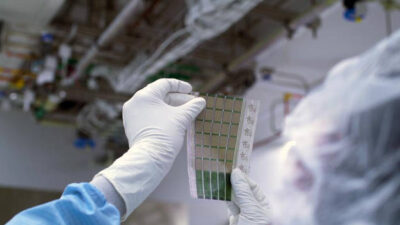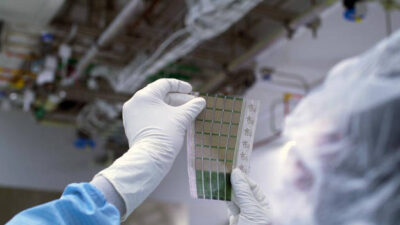Palo Alto, Calif.-based Affymax—a former division of Philadelphia-based pharmaceuticals giant GlaxoSmithKline—faced critical network congestion when it moved to a network-attached storage architecture. The network, recalls Affymax Engineer Ben Maulis, had neither the speed nor the capacity to handle the volume of traffic the move entailed.
Palo Alto, Calif.-based Affymax —a former division of Philadelphia-based pharmaceuticals giant GlaxoSmithKline —faced critical network congestion when it moved to a network-attached storage architecture.
The network, recalls Affymax Engineer Ben Maulis, had neither the speed nor the capacity to handle the volume of traffic the move entailed. As a result, full backups of the company’s mission-critical information took four days.
The network-intensive analytical applications used by Affymax chemists and biologists didn’t help—and neither did a “woefully inadequate” network infrastructure.
A plan to run 100Base-T cable to 250 desktops would help—as would installing Gigabit cable on the trunks and in the data center—but congestion at the server end still looked inevitable.
That didn’t happen, thanks to Gigabit Accelerators from Alacritech , a company specializing in network-boosting acceleration technology.
“Within a server, the network and TCP/IP processing consumes more resources than people typically imagine.”
—Doug Rainbolt,VP, marketing & sales, Alacritech
“Server network and TCP/IP processing consumes more resources than people imagine,” says Doug Rainbolt, an Alacritech company VP. “Installing what can be thought of as turbocharged network interface cards designed to take responsibility for network and TCP/IP processing, and interfacing these directly to application memory, removes a lot of the network workload from the processor.”
Because the processor is no longer interrupted by network traffic, processor performance increases. And with network and TCP/IP processes handled by specialist hardware, network performance improves too.
“Compared to a standard network interface card, there’s a 45-percent increase in throughput performance, but it can be as high as 300 percent, depending on the particular traffic being handled,” says Rainbolt.
“We successfully consolidated servers from 30 to 12, and significantly increased network throughput. Full backups now take only eight hours, a 75-percent reduction,” concludes Maulis.



